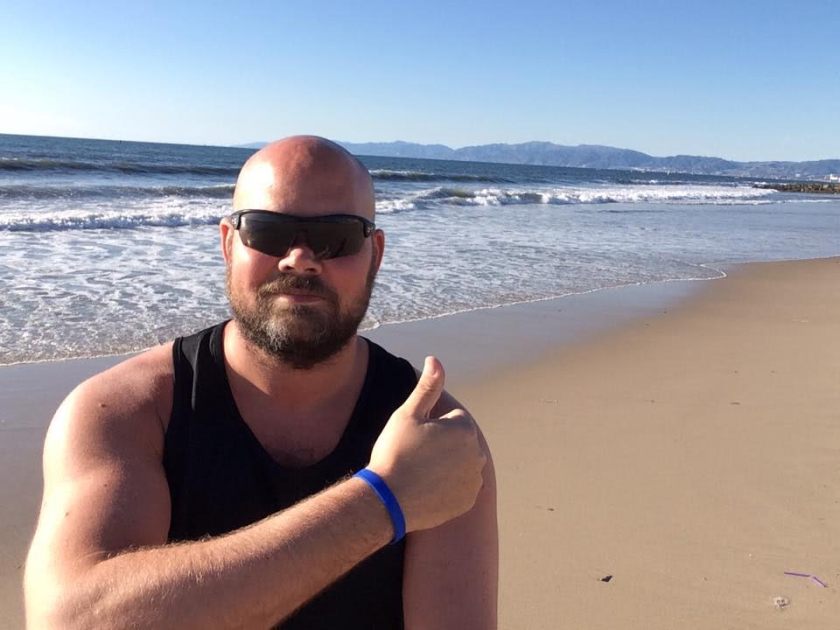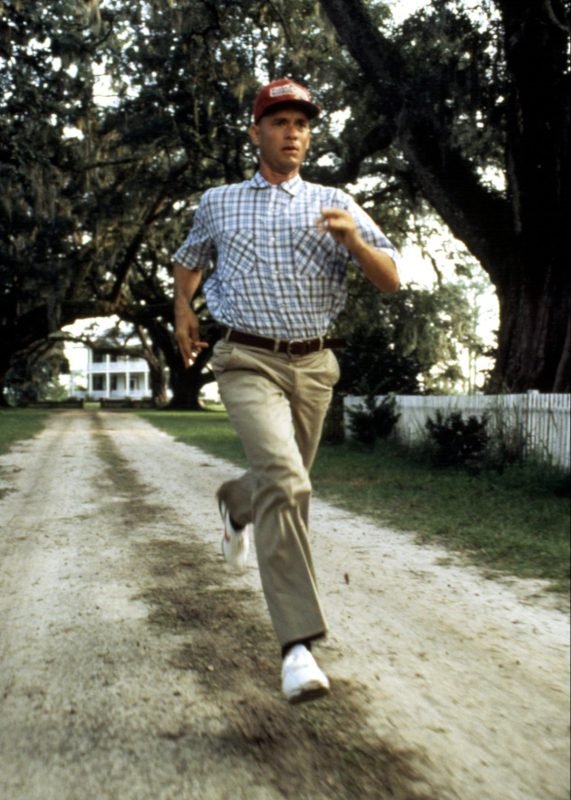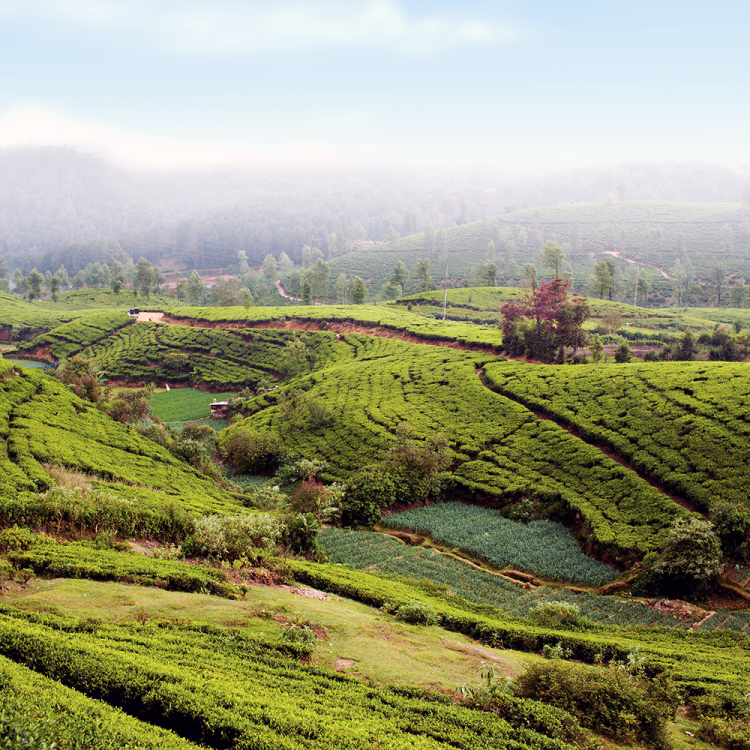
Thirty-seven-year-old K.P. Kelly considers himself an “athletic underachiever.” He’s being a little modest.
The six-foot-seven-inch, 250-pound Ohioan might be built like a football player, but as he recently noted to RealClearLife, he’s run a 4:20 mile; a sub-3:05 marathon; and as of last year, run across his home state twice—first over a six-day period, and then straight through, conquering 262 miles in 59 hours.
If you think that’s crazy, just listen to what he’s up to right now: Kelly is in the process of running 100 marathons in 100 days for 100 different charities.
Where did he come up with the idea? While running, of course.
He set out for a night run at his alma mater Bowling Green, where he had been speaking to students about social media (he’s a social media marketer by trade). “I did a little livestream that night and said I was going to do [the marathon challenge], and by the time I woke up in the morning, there was hundreds of Twitter followers and people wishing me good luck, and so, it was too late to back out,” says Kelly.
So he kicked things off in Los Angeles, California, on Dec. 10, and has been running daily marathons ever since. The day we talked to him— Monday, January 30 —Kelly was in Gulf Shores, Alabama, and planning to run his 52nd consecutive marathon from 2 p.m. to about 6:30–7 p.m. that evening.
Why the late start? So he could do his job during the day. On the weekends, though, he told us that he runs earlier, because that’s when actual marathons take place. Some prescheduled marathons are actually part of his itinerary: The following day, he told us he’d be backtracking to New Orleans to run in their Rock and Roll Marathon.
How does he keep up the pace? Below, we’ve mapped out just what Kelly needed to do to make it through 100 marathons in 100 days. For those who are wondering, he’ll be finishing on March 19 in Daytona Beach, Florida. What’s the first thing he’ll be doing post-race? “Nothing,” Kelly told us, emphatically.
Training
Six months to a year from the run: “I did a lot of cross-training early on, where I did weight training. What I would do is [take] a low weight and [do] an insane amount of high reps. So I might pick up a 20-pound dumbbell and just do 200 reps—just keep going and going and going to simulate that endurance and what the muscles need.”
Three months from the run: “I couldn’t do anymore [weight/cross-training], because I had to increase my running and running distance. And when it got to any day where I was doing over 20 miles a day, I couldn’t lift or do anything else. That was it.”
Milestones:
(1) 40 straight days of 20 miles
(2) 30-50 miles every other day for a month; the idea here was to eclipse the 26.2-mile distance of a marathon and thereby make the physical ordeal routine
Takeaway: “We’re all capable of far more than we give ourselves credit for.”
Fuel
Diet: 6,500 calories/day
Breakfast: high-calorie shakes; three or four bagels with “a bunch of peanut butter on [them]”
Lunch: four chicken breasts; a bunch of broccoli; high-calorie shakes
Dinner: large pizza with white sauce and cheese, double chicken, tomatoes, and peppers
Takeaway: That’s a lot of food! One of Kelly’s biggest concerns is dropping a lot of weight during his 100-marathon feat, so the food intake is super important to him. He realizes that as he nears completion, though, he’ll tire of the diet and begin to lose some weight.
Soundtrack
Kelly’s running playlist has been all over the place, he tells us, swinging from oldies to pop. “I used Pandora for awhile, and now I use Amazon Music’s one-click checkout. I sometimes order stuff when I’m running,” he says.
Pro Tip: “Avoid the Rocky soundtrack at all costs, because it’s very motivating, but you will run a really fast mile but then tire out because you got too motivated.”
‘Cast No Shadow: “I started listening to podcasts a lot while I’m running, and that’s been working really well for me. It does the same thing as music, where it’s distracting my mind and [I’m not] thinking about what my body’s going through. With the podcasts, it slows me down a bit and it makes me feel like I’m almost part of a conversation.”
Work
As a social media marketer, Kelly has made a living getting attention for other people’s brands via Twitter and Facebook. But as he tells us, “For this run in particular to get the attention to the charities, I have to bring attention to myself, [which is] not something I’m entirely comfortable with.” Then again, he’s now got 306,000 Twitter followers of his own (as well as his Facebook hub), so he has his own mini-brand to take care of, too.
Charity
The vast majority of the charities Kelly picked were ones that personally impacted him, his family, or overall worldview.
“My mom has Alzheimer’s, so I picked several Alzheimer’s-related charities. In each of the cities I’m in, I’m running for their local Alzheimer’s association on one of those days.”
“I have Tourette’s Syndrome myself, so I picked several Tourette’s associations.”
“I have a nephew who spends most of his time living out of a hospital [bed] with cystic fibrosis,” he said, so that led him to a number of related charities.
“I picked a bunch of military related charities, especially ones that help troops once they come home, because those are generally more under-funded.”
Takeaway: “I think everybody has a way to use their own skills and ability to give back to other people. They just have to get creative.”
—Will Levith for RealClearLife
This article was featured in the InsideHook newsletter. Sign up now.


















